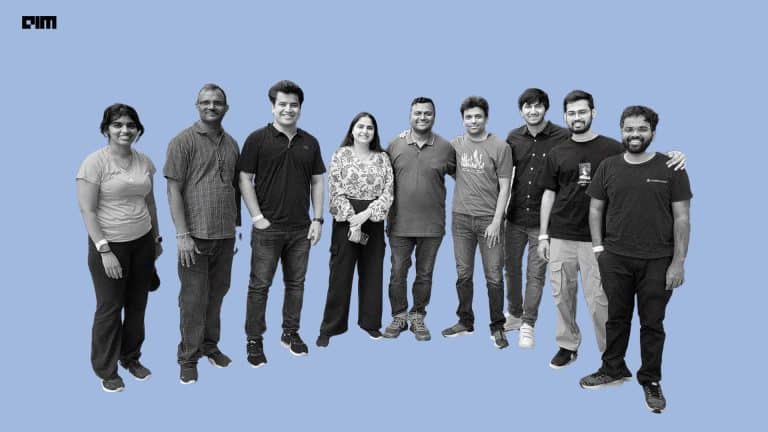Over the past few years, the data science field has seen massive growth. Time and again, it has been touted as the hottest job of the 21st century. So naturally, a lot of people are drawn towards this field. However, beyond the hype, the reality is that it is still tough to land a job despite the projected great demand for data scientists.
Like any other job interview, a recruiter may not necessarily divulge the reasons for rejecting a particular candidate. A lack of clarity can result in confusion, dejection, and disappointment for the interviewee. This article will explore a few reasons why you may not be getting a call back from the recruiter.
Lack of Specific Skills
Data science is a field of work that is responsible for solving some of the most complex tasks. This implies that a person working on such a project must possess immense knowledge and skill set. Therefore, an ideal candidate for a data scientist job has skills in each of these three broad areas–Maths/Statistics, Databases/Programming, and Business acumen.
There are plenty resources available on what skills a data scientist must possess. This overwhelming amount of information often creates confusion. Even people without the know-how of basic analytical skills and numerical aptitude call themselves data scientists. It is essential to understand that an engineering degree is not sufficient to call oneself a data scientist. One must possess knowledge of Statistics, Mathematics, Economics, etc.
It is also advisable to go that extra mile and update oneself on other upcoming technologies, including cloud computing and deep learning.
Technical competency alone is not enough. Companies want people who can help them get more business and make money faster. A prospective candidate must be able to keep the big picture in mind. The ability to communicate even the most complicated technical aspects of your model to other team members (even from a non-technical background) is a highly desirable skill.
Standing Out
Annually, a lot of people enter the data science field. On paper, the know-how of technical and business skills alone is not enough to stand out among scores of applicants. A sure shot way to attract a recruiter’s interest would be to display samples of projects worked on in the past. This is especially useful for freshers.
Employers often look at candidate’s GitHub repositories. Therefore, it is advised to highlight past work on GitHub, display and highlight your best code solutions, and make GitHub a one-stop shop for potential employers to qualify you. To begin, one can look at repositories of other data scientists to get ideas to spruce up your GitHub repository.
Another way to demonstrate your skills would be to participate in different contests, hackathons, and competitions. One can try their hands on Kaggle data science challenges to place relatively higher on the leaderboard. A recruiter may see participation and ranking as something valuable.
CVs and Interviews
Often, in the end, it comes down to how well you ‘sell’ yourself. For starters, a curriculum vitae (CV) gives out a lot about a candidate even before the physical meeting. Therefore, it is important to develop a good CV specifically tailored to the data science job at a particular company.
Few minutes of the interview are enough for the recruiter to make up their mind on whether to further promote the candidate or not. It is crucial to prepare rigorously for the same. One must do their homework on the company’s history, the team they are applying for, the projects the organization has worked on in the past, etc. Other miscellaneous things like body language, confidence, attire also make or break the deal.
Other Miscellaneous Reasons
We have discussed all the pointers that recruiters look for in a candidate, the lack of which could lead to rejection or cancellation of the candidature. That said, a candidate may prepare themself on all the pointers mentioned above and still may not receive a callback. Often the reason might lie within the company policy or hiring procedure. For example, due to applicant tracking system software, a candidate may be stopped at the door based solely on the channel they are coming from. A possible solution would be to come through less frequently used channels.
Recruiters’ Take
As per Sunil Bist, CEO, NetConnect Global, below are a few hygiene parameters that need to be looked into to improve your chances as a candidate to qualify for an interview call.
- Complementary Skills Knowledge – The potential employers will be keen to hire talents who are knowledgeable/have worked on complementary computing technologies such as Cloud, Virtualisation technology, Service-Oriented Architecture (SOA), Grid Computing, etc.
- Case studies/Blogs & Whitepapers – Publish your knowledge with blogs, case studies and whitepapers in industry forums so that leaders can make a note of your skills, experience and expertise.
- Network, Learn, Contribute & Reference (NLCR) – Create a network in Data Analytics leading companies or your target prospective employers and contribute to their thought leadership. This would help you learn and potentially earn a reference for the “Right Job”.
“While certifications are necessary, learning about the deployment of scalable models and platforms used for deployment is very important. For this, involvement in live projects and internships that allow in-depth practical hands-on experience in the field should be prioritized. Additionally, using professional networking platforms effectively by reevaluating and building relevant connections, staying in touch with them, sharing knowledge, industry updates and experiences, and providing fresh and comprehensive information pertaining to one’s professional profile would be helpful as well,” said Shekhar Sanyal, Country Head and Director, IET India.
“Companies are looking for problem solvers, and if your resume is only focused on the tools and techniques used, then it does not really give the recruiter a chance to evaluate your problem-solving skills. Therefore, while detailing out your resume, talk about how you used a specific approach or tool to solve a problem; this will make your candidature far more appealing to the recruiter and open up interesting conversations during the interview,” said Raghavan Kirthivasan, Senior Director – Data Science, Epsilon India.
Suryadip Ghoshal, Chief Analytics Officer at Think360, said, “Knowledge of R and/or Python along with experience of key packages is expected from most candidates. Beyond that, to stand out in the resume pool, few spikes that we look for are:
- Interesting Projects: With so many publicly available libraries and data, new projects (which aren’t a part of the curriculum of mainstream online courses) provide an opportunity for candidates to stand out. Candidates should make their projects public and share links to their GitHub and Tableau profiles. These projects can also act as conversation openers in interviews.
- Competition Rankings: Hackathons and competition forums like Kaggle are great learning experiences for candidates. Good performance (being in the top 10%) in these competitions is a testament to good programming and problem-solving skills and the perseverance and ability of the candidate to understand the details of the problem statements.
“Building a good resume is equally important as many companies use bot screening, where the filters look for keywords and give scores to your resume. Make sure it’s readable and contains keywords in the job listing and is personalised,” said Harsh Gupta, founder and CEO, ProtonAutoML.
Follow and incorporate these aspects and habits into your application process to multiply your chances of getting that aspired data science job.




















































































